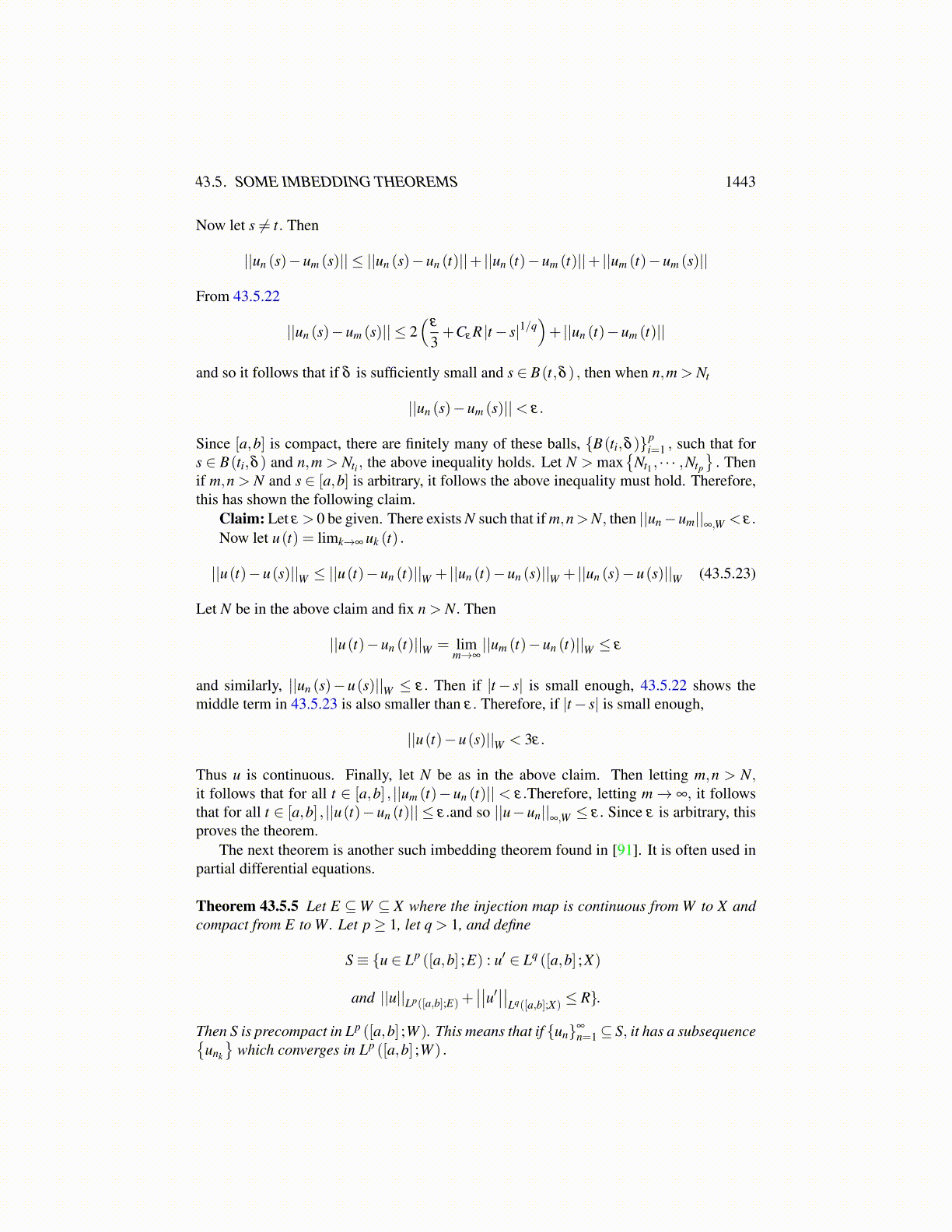
43.5. SOME IMBEDDING THEOREMS 1443
43.5 Some Imbedding TheoremsThe next theorem is very useful in getting estimates in partial differential equations. It iscalled Erling’s lemma.
Definition 43.5.1 Let E,W be Banach spaces such that E ⊆Wand the injection map fromE into W is continuous. The injection map is said to be compact if every bounded set in Ehas compact closure in W. In other words, if a sequence is bounded in E it has a convergentsubsequence converging in W. This is also referred to by saying that bounded sets in E areprecompact in W.
Theorem 43.5.2 Let E ⊆W ⊆ X where the injection map is continuous from W to X andcompact from E to W. Then for every ε > 0 there exists a constant, Cε such that for allu ∈ E,
||u||W ≤ ε ||u||E +Cε ||u||X
Proof: Suppose not. Then there exists ε > 0 and for each n ∈ N, un such that
||un||W > ε ||un||E +n ||un||X
Now let vn = un/ ||un||E . Therefore, ||vn||E = 1 and
||vn||W > ε +n ||vn||X
It follows there exists a subsequence, still denoted by vn such that vn converges to v in W.However, the above inequality shows that ||vn||X → 0. Therefore, v = 0. But then the aboveinequality would imply that ||vn||> ε and passing to the limit yields 0 > ε, a contradiction.
Definition 43.5.3 Define C ([a,b] ;X) the space of functions continuous at every point of[a,b] having values in X.
You should verify that this is a Banach space with norm
||u||∞,X = max
{∣∣∣∣unk (t)−u(t)∣∣∣∣
X : t ∈ [a,b]}.
The following theorem is an infinite dimensional version of the Ascoli Arzela theorem.[117].
Theorem 43.5.4 Let q > 1 and let E ⊆W ⊆ X where the injection map is continuous fromW to X and compact from E to W. Let S be defined by{
u such that ||u(t)||E +∣∣∣∣u′∣∣∣∣Lq([a,b];X)
≤ R for all t ∈ [a,b]}.
Then S⊆C ([a,b] ;W ) and if {un} ⊆ S, there exists a subsequence,{
unk
}which converges
to a function u ∈C ([a,b] ;W ) in the following way.
limk→∞
∣∣∣∣unk −u∣∣∣∣
∞,W = 0.